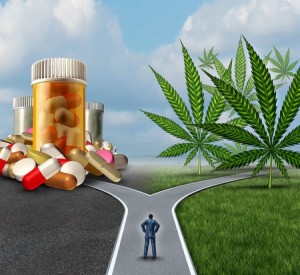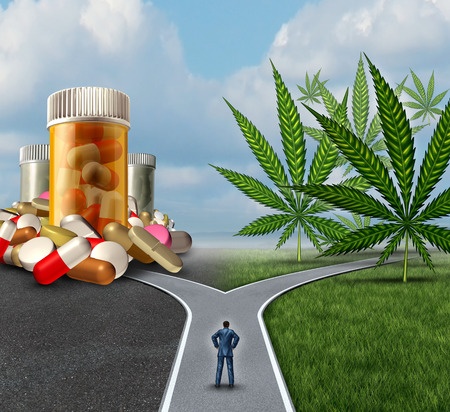
In my home state of Pennsylvania, the legislature is considering the legalization of medical marijuana. At least one activist believes it will happen in 2015: “We have the votes for it. It’s going to happen this term.” Jon Delano of KDKA cited Jay Costa, the Democratic Senate leader, as saying the medical marijuana bill is likely to be approved this spring. Legislation has been introduced in the Senate and gone to committee. “And it is very likely over the course of the next couple of months it will pass through the Senate and make its way over to the House.”
The new governor, Tom Wolfe, has publically said he would support medical marijuana in PA: “I believe that doctors who can now prescribe some of the most potent drugs in the world should be able to prescribe medical marijuana.” The problem seems to be in the State House, which is currently holding hearings on its own legislation. Tony Romeo with CBS Philly reported that law enforcement stressed the need for strict regulatory control if medical marijuana was legalized. Republican Matt Baker, chair of the House Health Committee said:
I am very cynical and skeptical about moving forward with this. And I think there are a lot of unresolved issues, and when you talk with the medical groups and the scientific community, they’re very, very concerned about us putting on white coats and trying to play doctor here.
Polls indicate that most Americans support the legalization of medical marijuana. More than half of the US population now lives in a state where marijuana in some form (medical or recreational) is legal. But take some time to really review this compilation of surveys on marijuana legalization on PollingReport.com. Several polls by organizations like the Pew Research Center, Gallup, and CBS News show a changing trend of Americans over time to agreeing that marijuana should be legalized, when the question is put as: “Do you think the use of marijuana should be made legal, or not?” All three organizations reported results that were essentially the same as the October 2014 Gallup poll—51% said yes to legalization; 47% said no to legalization.
But now look further down at a nationwide poll by the Pew Research Center taken in February of 2014, when the question answers had more options. There the question was: “Which comes closer to your view about the use of marijuana by adults? It should be legal for personal use. It should be legal only for medicinal use. OR, It should not be legal.” The results were: 39% said marijuana should be legal for personal use; 44% said it should be legal for medicinal use; 16% said it should not be legal; 2% were unsure or refused to answer.
Then the Pew Research Center published their newest poll on legalizing marijuana on April 14, 2015. This survey reported that 53% of Americans favored legalization, while 44% opposed legalization. Millennials (18-34) had the strongest support for legalization, with 68% in favor and 29% opposed. Among those who said marijuana should be legal, 78% did not think the federal government should enforce federal laws in states that allow its use. Conversely, among those who think marijuana should be illegal, 59% said there should be federal enforcement.
The most frequently cited reasons for supporting legalization are its medicinal benefits (41%), the belief that it is no worse than other drugs (36%) and its potential for tax revenue (27%). The most frequently mentioned reasons why people oppose legalization were that it hurts society and is bad for individuals (43%), and it is a dangerous, addictive drug (30%). So it seems that the Pew Research polls suggest there is more support for the use of medicinal marijuana than recreational marijuana.
Returning now to the compilation of results on Pollingreport.com there are some further interesting results in two other polls. In a CNN/ORC Poll done in January of 2014 the legal, not legal dichotomy gets most Americans saying marijuana should be legalized. And there is support for decriminalization measures as well. However, there are two other interesting results. 88% percent of the people polled think that marijuana should be able to be legally prescribed for medical purposes by their doctor. When asked if Colorado’s legalization of recreational marijuana was a good idea, a bad idea, or if you want to wait and see what happens before deciding, 33% thought legalization was a good idea; 29% thought is was a bad idea; and 37% wanted to wait and see what happens before they decide!
A Fox News Poll taken in February of 2013 asked if you thought that most people who smoke medical marijuana truly need it for medical purposes or just want to smoke marijuana; 30% said they truly needed it; 47% thought they just wanted to smoke it; 12% said it depended upon the person; 11% were unsure. Although there aren’t many well-accepted medical uses for marijuana as this point in time, there are some.
A 2007 study in the journal Neurology showed that marijuana is effective in reducing neuropathic pain in HIV patients. Live Science also reported marijuana, when combined with opiates, led to dramatic levels of pain relief. It has been helpful in reducing stiffness and muscle spasms in MS (Multiple sclerosis). It appears useful for reducing nausea induced by chemotherapy. Medical marijuana has been touted as a treatment for glaucoma, but other drugs are more effective.
Legalizing medical marijuana now will not just legitimize its medicinal use for these generally accepted conditions, it would permit the medicinal use of marijuana whenever the individual has been given a prescription for it by a doctor. Without reliable, scientifically replicated studies of the claims for medical marijuana efficacy, we would be returning to the times of patent medicine, where medical marijuana is claimed to treat almost anything and everything. The CNN polled opinion that medical marijuana users didn’t really need it, but just wanted to smoke it would then come true.
Sensible use of medical marijuana should follow the established procedures for all medicinal substances—approval by the FDA. As the medical usefulness of marijuana for a condition is demonstrated through this process, it would then become a FDA approved medicine. I realize that once marijuana reaches this bar of approval, it would then be available for off label use for other medical conditions. But it would also then be REGULATED like all other medical treatments. The current process of state-by-state legislative approval of marijuana for medical purposes circumvents this regulative process. It was established to protect American citizens from the fiascos of past medical treatments that turned out to be ineffective at best and harmful at worst.
Reform must start at the federal level. Given that marijuana has been a Schedule I controlled substance, its availability for the kind of medical research needed to gain FDA approval has to be increased. So a first step would be changing its status from a Schedule I controlled substance to that of Schedule II. The reclassification would make it easier to do the needed research on its legitimate medical uses. I’d suggest delaying the approval of medical marijuana in Pennsylvania and the other states where it is not yet legal until research demonstrating its medical usefulness has gone through the FDA clinical trial process. This would delay the approval of medical marijuana, but it would establish a more stable path forward for the legitimate medical use of marijuana. Debates for the off label medical use could occur alongside those now going on for other classes of FDA approved drugs such as antipsychotics and antidepressants.
Incidentally, there was a bill introduced in the U.S. Senate to reclassify marijuana from Schedule I to Schedule II, the Compassionate Access, Research Expansion and Respect States (CARERS) Act. While it is gaining support, key leaders in both parties have reservations. As the Motley Fool pointed out, the proposed loosening of federal restraints comes just as a new study of the effects of heavy marijuana use on long-term memory in adolescents was published. I hope that if ongoing research demonstrates the need for further restrictions on the medicinal use of marijuana, there would be public and legislative support for that as well.
I suspect this suggestion would not be acceptable for many medical marijuana activists because their final goal is not just the medicinal legitimization of marijuana. Acceptance of medical marijuana may be the first steppingstone towards the legalization of recreational marijuana. As the polls show, there seems to be wider support for the medical use of marijuana than for the recreational use of marijuana. So press for the medical use of marijuana now, and then recreational approval at a future date.





